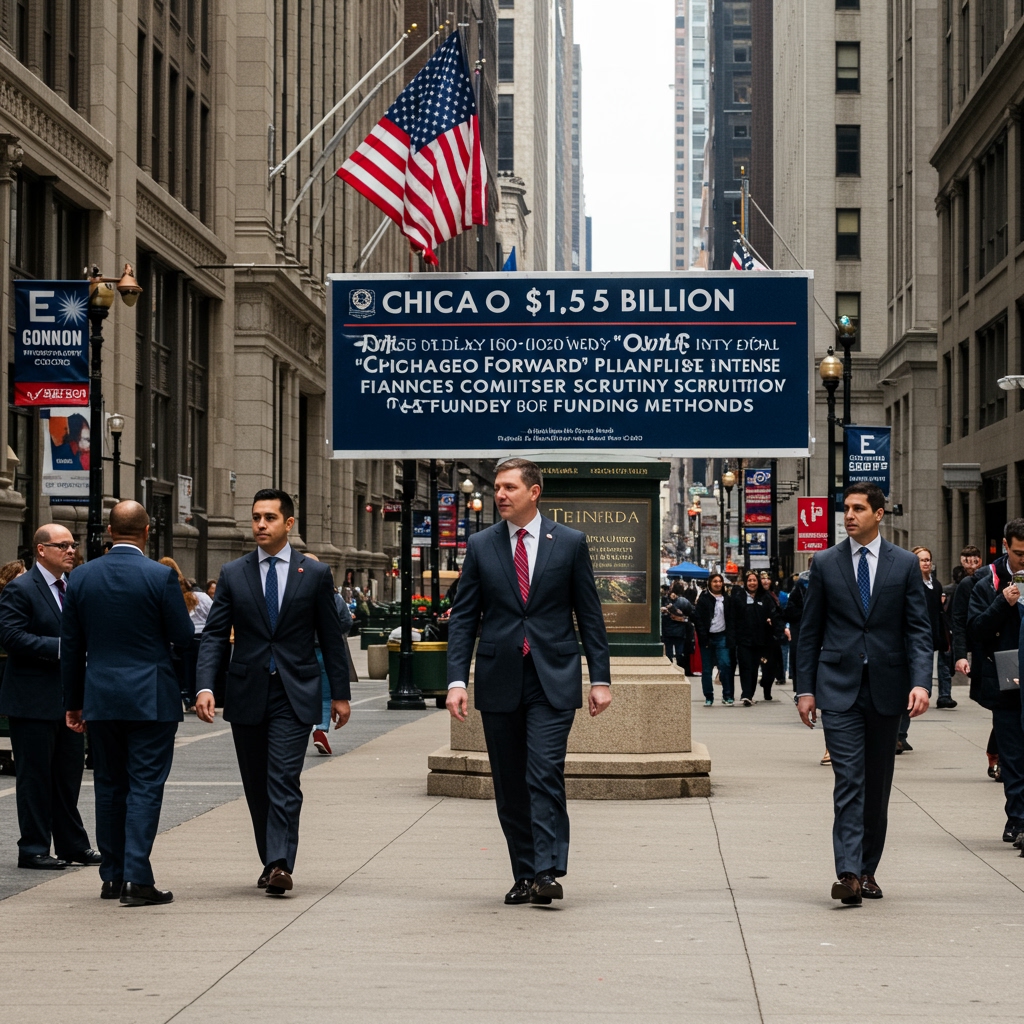In a powerful editorial published on August 18, 2025, the Chicago Teachers Union (CTU) declared, “We are SO back!” – a defiant assertion of the progress made in the city’s public education system despite persistent underfunding. This celebratory tone, however, is tempered by a stark accusation: Governor J.B. Pritzker and Illinois lawmakers still owe Chicago students and families a staggering $1.6 billion. The union’s message underscores a critical juncture for Chicago Public Schools (CPS) as they grapple with severe budget shortfalls exacerbated by state fiscal policies that, according to the CTU, prioritize corporate interests over vital public services.
The CTU’s news arrives amidst a backdrop of ongoing financial strain within CPS, which faces a formidable $734 million budget deficit for the upcoming school year. Despite the challenges, the union highlighted tangible improvements in schools—smaller class sizes, reopened libraries with more librarians, and the expansion of Sustainable Community Schools—all fruits of a hard-won contract. This progressive model for public education, which champions robust support systems like social workers and nurses, stands in stark contrast to former President Donald Trump’s national approach of dismantling educational support structures, actions that have already led to significant federal funding cuts impacting Illinois schools.
The Funding Gap: A Tale of Two Budgets
The core of the CTU’s grievance lies in what they term a profound imbalance in state fiscal priorities. While Illinois lawmakers, under Governor Pritzker, have allocated substantial tax breaks to corporations and the ultra-rich—amounting to nearly $10 billion in state giveaways—and the wealthy continue to benefit from an additional $8 billion in Trump-era tax cuts, schools across the state, and particularly in Chicago, face critical underfunding. The CTU contends that this $18 billion in tax breaks could eliminate CPS’s funding gap more than eleven times over.
Governor Pritzker’s administration has made efforts to increase K-12 education funding, proposing a $350 million increase for the next fiscal year, bringing the total to $11.2 billion. He has also championed investments in early childhood education and higher education. Furthermore, Pritzker has been vocal in challenging federal funding cuts to education, joining other governors in demanding the release of over $240 million meant for Illinois schools and condemning Trump’s moves to dismantle the Department of Education. However, from the CTU’s perspective, these efforts fall short of truly addressing the systemic underfunding and do not move the state closer to fully funding schools.
Public Mandate for Progressive Taxation
The CTU emphasizes that their demands align with widespread public sentiment across Illinois. Data indicates that a significant 91% of Illinoisans believe in public education, and an overwhelming 71% support increased funding for schools. A majority, 63% of Americans, believe this funding should come from raising taxes on corporations and the ultra-rich. This public appetite for progressive taxation has been evident in recent years; while a binding progressive income tax amendment failed in 2020, Illinois voters in November 2024 supported a non-binding advisory question for a 3% tax on incomes over $1 million, with revenue designated for property tax relief.
Proponents argue that such a tax could generate substantial revenue, with the Pritzker administration estimating a 3% tax on millionaires could raise $4.5 billion. The CTU sees this as a clear mandate from the people to implement progressive revenue solutions, suggesting taxes on corporations’ hidden offshore profits, billionaires’ stock gains, and digital advertising to raise much-needed funds for schools, healthcare, and public transit.
The Massachusetts Model: A Blueprint for Success
Central to the CTU’s argument for increased funding through progressive taxation is the compelling example of Massachusetts. In 2022, Massachusetts voters approved the “Fair Share Amendment,” imposing a 4% surtax on incomes over $1 million. This initiative has been an undeniable success, generating $2.2 billion in its first fiscal year—more than double initial estimates. Far from driving away the wealthy, Massachusetts has seen its millionaire population increase by nearly 39% between 2022 and 2024, demonstrating that progressive taxation does not necessarily lead to economic detriment.
The revenue from Massachusetts’ millionaire’s tax has been channeled directly into vital public services, funding universal free public school lunches, expanding childcare access, increasing financial aid for college students, and improving transportation infrastructure. This success story serves as a powerful blueprint for Illinois, illustrating how taxing the wealthiest can lead to significant and tangible benefits for public education and other crucial social programs without harming the state’s economic standing.
The Path Forward for Chicago’s Schools
The Chicago Teachers Union’s August 18th editorial is more than a celebration of recent victories; it’s a renewed and urgent call for state legislators to honor their commitments to public education. With CPS facing significant cuts to staff, including meal prep workers, crossing guards, and janitorial services, the need for adequate state funding is paramount. The union, alongside the Mayor’s office and CPS leadership, agrees that billions more from Springfield are essential to secure a stable and thriving future for Chicago’s students.
The CTU argues that the state’s failure to provide the owed $1.6 billion translates to a direct loss of resources for students, potentially depriving CPS of $4,000 more per student or the ability to hire 16,000 more educators and staff. As the state deliberates its budget and faces the implications of federal cuts, the message from Chicago’s educators and families is clear: fully funded schools are not a radical ask, but a public expectation and a societal necessity. The path forward for Illinois’ students lies in prioritizing human capital over corporate tax breaks, mirroring the success of states willing to invest in their collective future.















